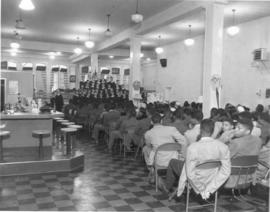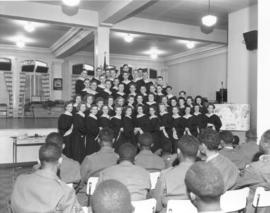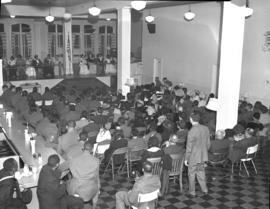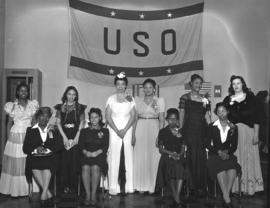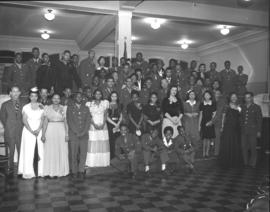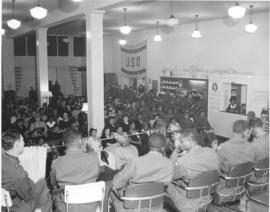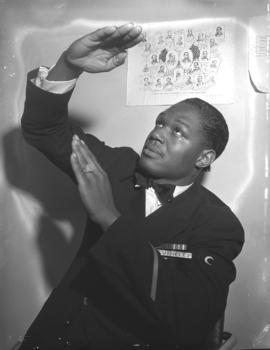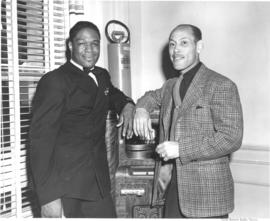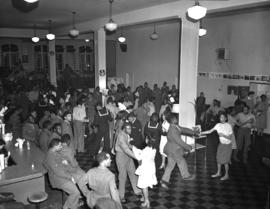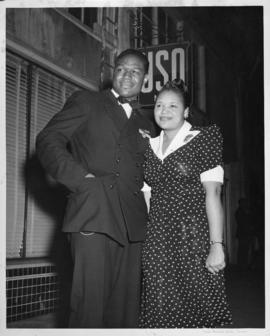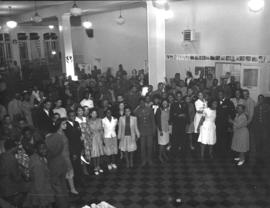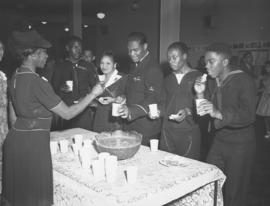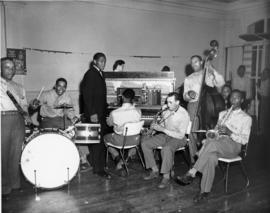- Item
- 1943-05-09
Part of Richards Studio Photographs
In 1943, although they fought side by side, the Army was still segregated. African American servicemen has their own USO Club in Tacoma, the U.S.O. #2 at 713-15 Commerce St. For Mothers Day in 1943, the black community of Tacoma tried to make the men feel at home by inviting them to a special church service. In honor of the holiday, the Lincoln High School a-capella choir (in robes) also presented a special program. (T. Times 5/8/1943,pg.7)
World War, 1939-1945--Social aspects--Tacoma; USO clubs (Tacoma)--1940-1950; African Americans--Social life--1940-1950;
